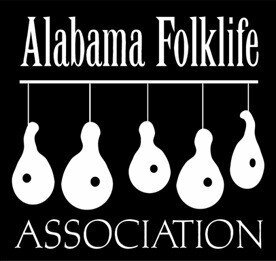Elevating Refugee Voices: Ameer & Noor
Keyhole Photo
Ameer grew up and attended college in Baghdad, Iraq. He married Noor in 2008 and the couple was working and raising two children when things turned dangerous in Iraq, particularly for Ameer who worked in concert with the American government. In 2013, after someone turned up at his son’s day care looking for Ameer (and Ameer’s brother snuck the child out the back door), the family fled to Turkey as refugees.
They lived in an apartment in a small city, but per Turkish government regulations, were not allowed to work. Yet they still had to pay for expenses: rent, utilities, food, clothing. They lived on the funds they had from selling their house and car in Iraq, but when those ran out after two years, they struggled to afford the basics. They had to give the baby water instead of milk and keep him in the same diaper all day. They lived without electricity for weeks at a time, unable to pay the bill, even during cold weather.
Turkey was home to millions of refugees from multiple countries, and where Ameer’s family lived, there was an anti-refugee sentiment. Natives believed refugees were stealing their jobs and houses. Landlords and shop owners inflated prices for refugees. At school, Ameer’s son was bullied by classmates and teachers alike for not understanding Turkish (he spoke Arabic).
But Ameer kept hoping his VISA application to the US would be approved, though he had no idea how long it would take. One refugee friend had been waiting in Turkey for seven years. In four years, Ameer had 25 interviews with various American personnel; each required the whole family to travel by bus for 12 hours to Istanbul.
In 2017, Ameer’s VISA was approved. But the day before the flight to the US, President Trump blocked the entrance of refugees from seven countries, including Iraq. The family returned to Turkey for three more months, before finally leaving for JFK, then Atlanta, then Mobile.
Ameer and his family arrived in Mobile in 2017, a third child was born the following year. It was particularly hard for Noor at first, being pregnant and having a newborn with no family or English language skills. But the family settled in. They emphasize how much help they received from Catholic Social Services, Dwell, and the children’s school. In the US, “everything was different,” their oldest son, Ahmed says. “At school, they made me feel welcome. They taught me how to speak English and do work.”
Ameer worked at a gas station for the first six months, building his English skills, before transitioning to work driving a delivery truck six days a week. He once got stopped for an inspection and bonded with the police officer, who had served with the military in Iraq. “When I’m driving I say to myself, this is a dream,” Ameer says. “I’m driving here in America. It’s like a dream I’ve seen in a movie.” He has traveled to other US cities (his mother now lives in Maine) but Ameer prefers Mobile. “Mobile is very quiet. The people is so nice. Everything is easy. Everything is not expensive.”
Noor agrees. “This is a dream,” she told her husband, when they arrived in America. “This is not real. Everything easy. Every people help.” She now works for a day care center, takes the kids to and from school, grocery shops and cooks dinner, and attends citizenship classes with Ameer in the evenings, where they study 100 questions in preparation for the exam.
Of course, they miss their family in Iraq. “I love my job and my country,” Ameer says. “But I needed to try to save my kids and my family. This is the first thing. I know I’m not coming back. This is very hard. But I need the future for my kids.”
Ameer has not returned to Iraq, but Noor did go back for a week to visit her mother, who was ill. She was happy to see her family, but stayed nervous the whole time, refusing to go outside. “Everything changed,” she explains. “Everything is haram [forbidden by religious law]. I wanted to come back after three days. I said, America, that’s it. I love it. I’m not looking behind. I’m looking forward.” Ameer agrees. “Everything has changed. We have a new life. It’s like we start at zero and we’re going up.”

